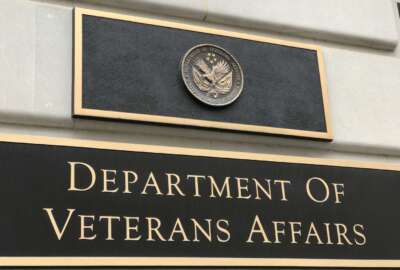Senate wants new legal deadline for DoD audits
Defense Secretary Leon Panetta has told DoD he wants it to be ready for a partial audit by 2014. The Senate this week is considering taking that goal and making...
wfedstaff | June 4, 2015 2:33 pm
The Senate agreed Wednesday to give DoD an even more aggressive legal deadline for getting ready to pass an audit.
Under current law, DoD has to be audit-ready by the close of business on Sept. 30, 2017. Meanwhile, Defense Secretary Leon Panetta has told the department he wants to be ready for a partial audit by 2014.
During debate on its version of the 2012 Defense authorization bill Wednesday, the Senate approved an amendment, offered by Sen. Kelly Ayotte (R-N.H.) that would take Panetta’s more ambitious goal for a partial audit and elevate it into law.
Panetta, a former director of both the Office of Management and Budget and the House Budget Committee, came into office proclaiming a commitment to DoD auditability early-and-often, elevating an issue that got scant public mentions from his predecessors in the Pentagon.
“While the department’s systems do tell us where we are spending taxpayer funds, we do not yet have the details and controls necessary to pass an audit. This is inexcusable and must change,” Panetta told a House committee soon after assuming office.
The secretary initially wanted the Pentagon to not just meet, but beat the Congressionally-mandated 2017 audit deadline, but eased his position after a closer examination of the difficulties the Defense Department faces. Instead, he established the interim goal of 2014 for a narrower audit: the department’s Statement of Budgetary Resources (SBR), an accounting of money in and money out that could withstand the scrutiny of professional auditors.
JoAnn Boutelle, a former deputy chief financial officer at DoD, said that while the existing statutory deadline of 2017 is achievable, the short-term 2014 SBR objective will be tough to meet, whether it’s mandated by Congress or by the Secretary of Defense.
“I think it’s a real challenge. They’re making progress, but I don’t think they have the detailed plans, nor the expertise to help them through what’s going to be required by auditors,” said Boutelle, a former deputy DoD chief financial officer and now a partner at Deloitte, one of the firms that’s helping the Pentagon in its audit readiness effort.
“The department has very good accountants, but they don’t have expertise in auditing financial statements,” she said. “They’ve acquired some of that help from our firm and others. But there’s a lot that the auditors expect. You have to be able to retrieve documents for the auditors. I’m not sure that the folks in DoD have a full appreciation for that yet.”
Robert Hale, DoD’s current comptroller and chief financial officer said the Pentagon has brought Deloitte and other firms in for that precise reason: it’s never passed an audit before, and it’s financial management workforce, no matter how dedicated and talented they are, are working in a different world. DoD’s business processes and financial systems were designed more to meet military missions than to pass muster with auditors.
While the department is trying to get itself in shape for an audit, there are some major challenges to applying commercial audit practices to a massive public enterprise: The real estate encompassing the Pentagon and Andrews Air Force Base, for example, aren’t likely to be put up for sale by DoD any time in the near future, nor does the department have to worry about paying taxes.
Hale said in an interview with Federal News Radio that while asset valuation is a key motivator for auditability in the private sector, many of the same drivers are irrelevant for DoD.
Nonetheless, Hale said there are many reasons the department needs to meet its audit goals. For one, it’s the law, and having driving toward auditability will also force the department to improve its business process and manage its resources more effectively.
“But the big issue in my mind is public confidence in us as reasonable stewards of their funds,” he said. “Even though I think we are reasonable stewards, people won’t believe us if we if we can’t pass an audit. It’s very important that we have public confidence if we’re asking to spend $600 to $700 billion dollars a year of their money.”
Boutelle said the 2017 deadline is achievable, but only with sustained leadership at the level of the secretary of Defense, and only with a well-trained financial management workforce with audit expertise inside DoD.
“If top leadership becomes actively involved and they bring in enough resources to help the military departments and agencies lay out defined plans and manage this aggressively, then 2017 is doable, and maybe even something short of that,” she said. “This is a tough, tough area right now, but I think it is one that once they achieve it, it’s going to reap so many rewards in better information for them as they manage their resources going forward. I think everybody’s going to see the value in having done this.”
Hale said the public attention to the issue from Secretary Panetta has already made a big difference inside the department.
“By virtue of his commitment, we’ve seen the service secretaries and undersecretaries and the service chiefs get much more interested in this topic,” he said.
“They’re critical in communicating to commanders. This has to be a command responsibility, or we will not succeed.”
RELATED STORIES:
Leadership, well-trained workforce are key to DoD audits, outside experts say
Panetta wants full accounting of money in, money out by 2014
GAO praises DoD audit plans, questions implementation
Copyright © 2024 Federal News Network. All rights reserved. This website is not intended for users located within the European Economic Area.
Jared Serbu is deputy editor of Federal News Network and reports on the Defense Department’s contracting, legislative, workforce and IT issues.
Follow @jserbuWFED






